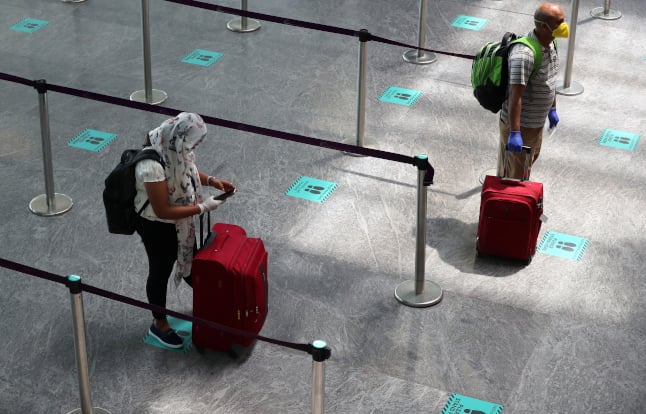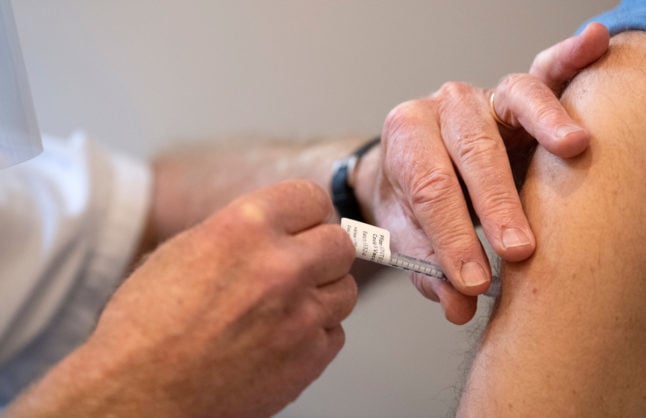Are people in Sweden warned against travelling to India?
Yes. The government advises to avoid non-essential travels to most countries outside the EU, including India. This is not a ban on travel, and there is no exact definition of what “non-essential travels” means, but the Foreign Ministry writes that it “mainly refers to visits and tourism” and not business trips. Travelling for urgent family reasons could be seen as essential, but you should be aware that disregarding the advisory may affect the validity of your travel insurance, so check the terms and conditions of your insurance if you need to travel.
Even if travelling to countries exempt from the warning, the Foreign Ministry advises making a risk assessment, reading up on local Covid-19 rules, and planning for the trip home well in advance. This obviously applies to India and other countries on the warning list as well.
Are people allowed to travel from India to Sweden?
It depends. There is a temporary ban on entering Sweden to mitigate the outbreak so therefore as a general rule foreigners travelling to Sweden from a non-EEA country will be denied entry. However, there are some exceptions, for example:
- Swedish citizens, EU citizens & EEA citizens (plus San Marino, Andorra, Monaco and The Vatican State citizens)
- Individuals with a residence permit in Sweden or another EEA state, and their family members (this includes spouse, cohabiting partner or a child under the age of 18, but does not generally include parents or siblings, unless in exceptional circumstances)
- Holders of a national visa for Sweden
- People travelling for urgent family reasons
- People travelling to Sweden for the purposes of studying
- People travelling to work in essential functions in Sweden such as health care professionals, the transportation of goods such as food and medicines, and seasonal workers employed in agriculture, forestry and horticulture
Residence/student permit holders do not need to already be residing in Sweden in order to enter – having a permit is enough, even if you are moving to Sweden for the first time.
Read a full list of exceptions to the entry ban here. Whether or not other people will be able to travel to Sweden also depends on India’s own travel advice and the availability of international flights.
Some categories of travellers may also need to show a negative Covid-19 test to be allowed entry, although there are exceptions to this too (for example for residents). You can read more about the rules and exemptions on the Police Authority’s website (note that the test rules for entering Sweden are legally enforced and different from the test recommendations after arriving in Sweden).
The entry ban is currently in place until at least August 31st. Unlike many other countries, Sweden’s entry ban does not differentiate between non-vaccinated and vaccinated travellers, so being fully vaccinated does not make a difference in terms of your rights to enter Sweden.
The entry restrictions relate to the country you’re travelling into Sweden from, so if you have a connecting flight in another part of the EEA, you will be processed as entering the EEA in that country, so make sure you read up on that country’s rules. Sweden will in turn process you as entering from the EEA, which means its rules on travelling from another EEA country will apply to you. Again, you can read more about that on the Police Authority’s website. Sweden currently has no restrictions in place for travellers from a country in the Nordic region.
Note also that the Migration Agency has halted a lot of visa applications to Sweden. It writes on its website: “Received applications are examined as usual, applications are also examined against the exceptions in the regulation about temporary entry ban to Sweden.”
Moving to study in Sweden
If you are studying at a university or starting a PhD in Sweden you can obtain a residence permit even if your teaching is remote or only partly on campus. This is valid for the whole of 2021. Most of the courses starting in 2021 will be held at least partly online, with the goal of returning back to campus as soon as the conditions allow it.
The percentage of courses held on location and online varies on a university to university basis and often changes also depending on your course. If you are thinking of moving to Sweden after your course’s start date you might want to contact your course administrator to know exactly when they require you to be on campus.
Throughout the pandemic most university libraries and study areas remained open, even though there has been a reduction of places available and an overall encouragement to study from home as much as possible.
What are the rules after arriving in Sweden from India?
If you fit the criteria for entering Sweden from India, there are still some rules and recommendations you need to be aware of. Swedish public health guidance states that unless you are fully vaccinated (in this case your vaccination status plays a role) you are supposed to self-isolate for seven days after your arrival, regardless of the results of your Covid-19 tests. If you are fully vaccinated and received your second dose at least two weeks before arriving in Sweden, you are exempt from this recommendation.
If you arrive in Sweden from India, you are also supposed to take a Covid-19 test as soon as possible after arriving if you did not have to take one before your journey. You should also take a second test on the fifth day, even if you do not have symptoms. These recommendations are currently in place until at least August 31st.
If you are fully vaccinated and received your second dose at least three weeks before arriving in Sweden, you are exempt from this recommendation (but should still get tested if you develop symptoms). Note the different timespan for the exemption to the testing recommendation and the self-isolation recommendation.
You should also make sure you are aware of Sweden’s recommendations to curb the spread of Covid-19. Many of the restrictions for private individuals no are not legally enforced, but it’s important to know they are not considered optional. That includes keeping a distance from others; meeting people outside rather than inside if possible and avoiding large gatherings; staying at home and isolating if you develop symptoms consistent with Covid-19; and avoiding places where there is a risk of crowding.
You can read more about Sweden’s current rules HERE.
What else should I be aware of when travelling to Sweden?
The information in this article was correct at the time of writing, to the best of our ability. We always advise readers to also seek information from the official sources, as everyone’s situation may be slightly different, and be aware that the rules can change quickly. Sweden’s infection and hospitalisation rates are currently low compared to previously, but some regions including Stockholm have been showing recent signs of an upturn in cases again. Here are a few websites you may find helpful:
KrisInformation is a service collecting information around crises from Swedish authorities, and has an English-language section dedicated to the pandemic.
The Public Health Agency publishes new figures regarding the number of cases, deaths, and intensive care patients Tuesday-Friday at 2pm. The Public Health Agency also publishes information about current health and safety recommendations, although the English-language section sometimes takes a while to update.
There’s information on Sweden’s healthcare website 1177.se about how to seek healthcare in Sweden, and how to get a Covid-19 test.
The Swedish Police Authority has a web page dedicated to frequently asked questions about Sweden’s entry restrictions. The Local has found this is usually up to date.
The Embassy of Sweden in India publishes updates on its website when the rules for travelling between the two countries are modified. Here’s a link to the website of the Embassy of India in Sweden.



 Please whitelist us to continue reading.
Please whitelist us to continue reading.
Thanks this was quite useful!